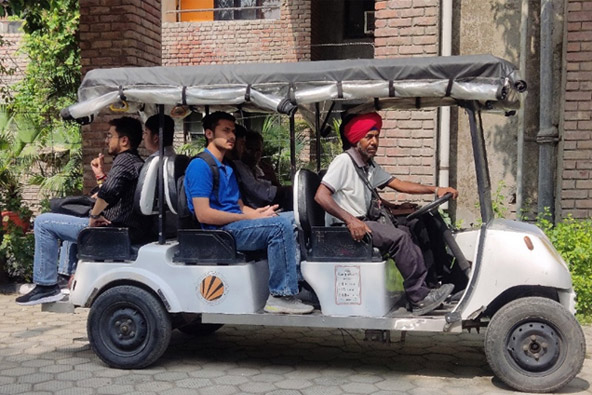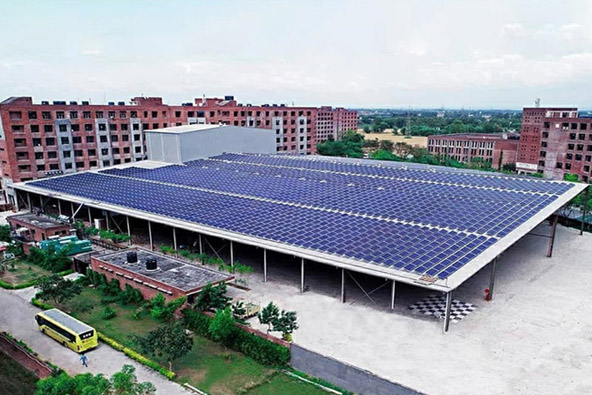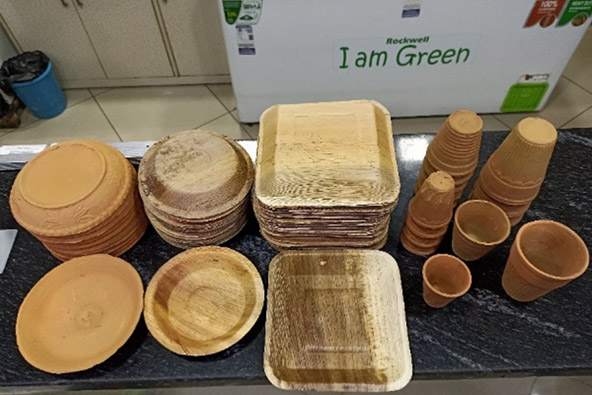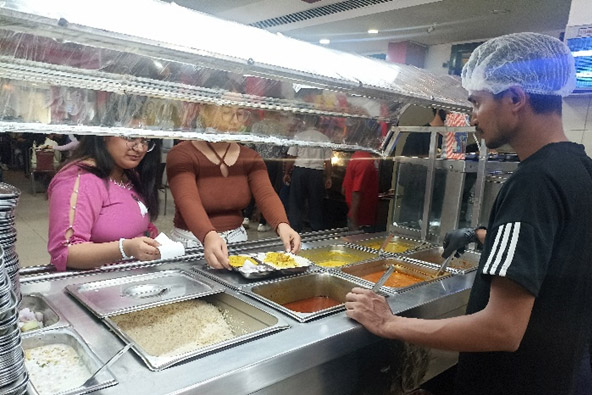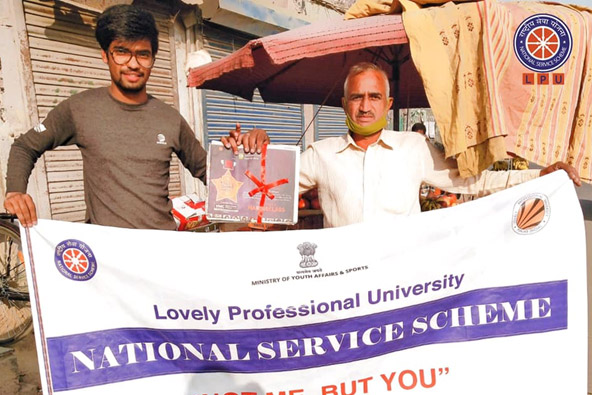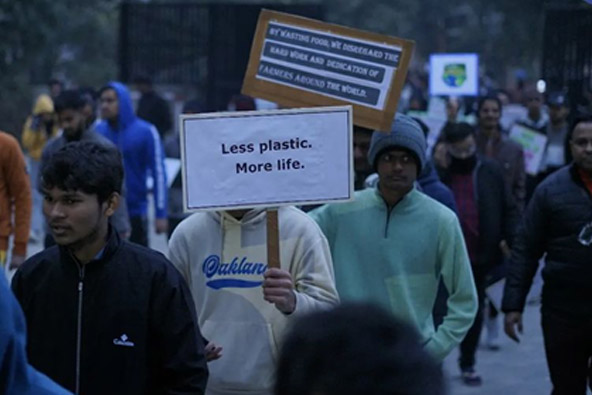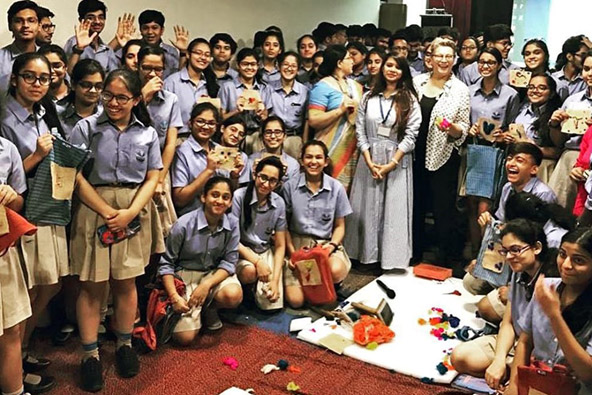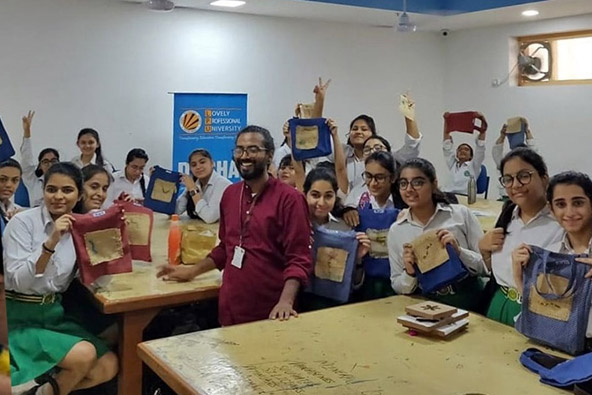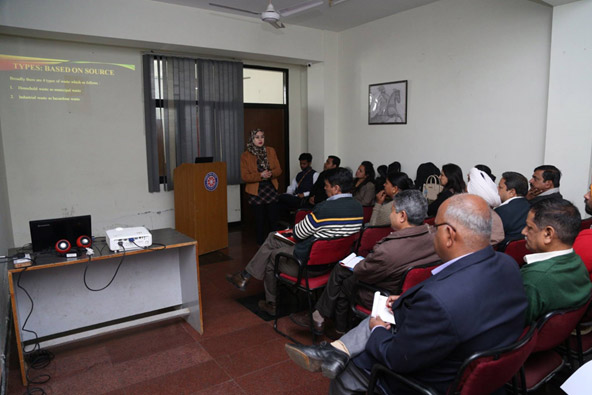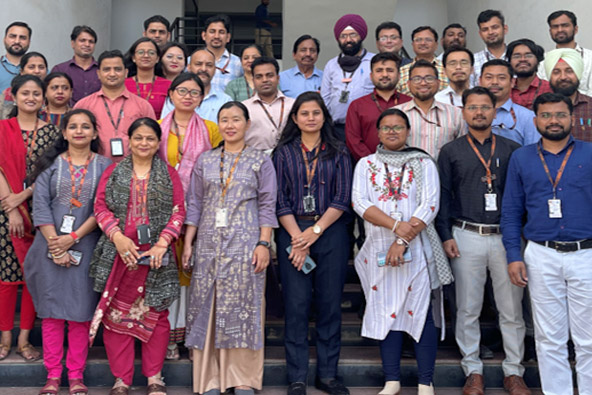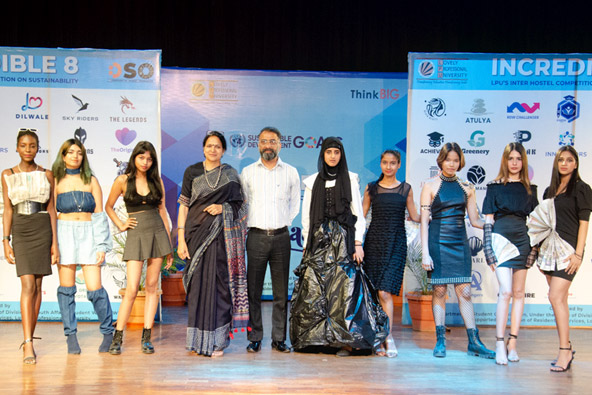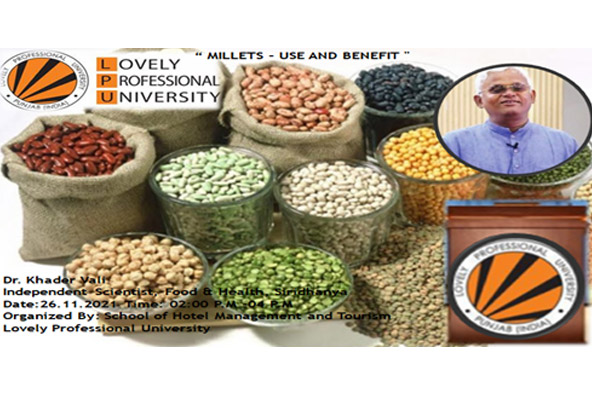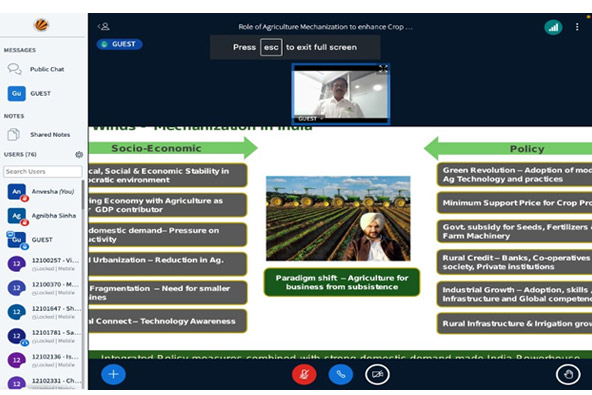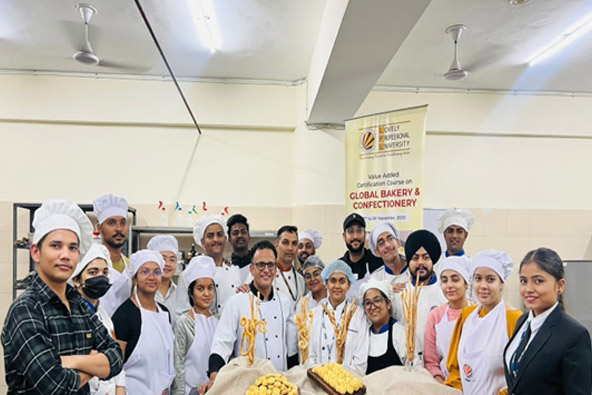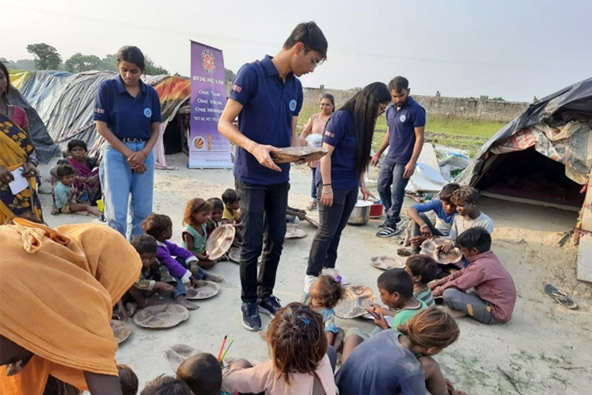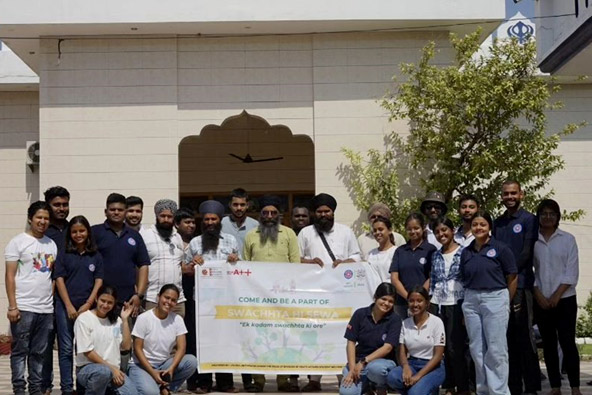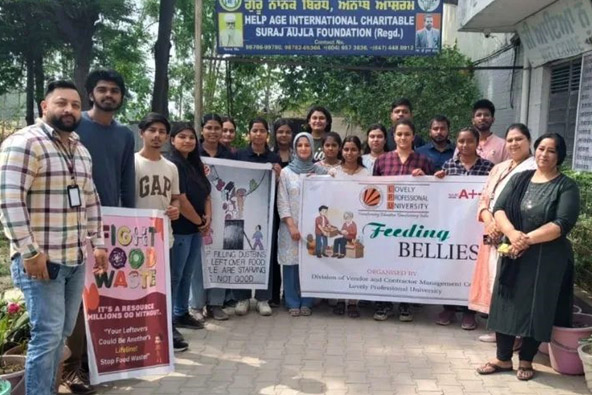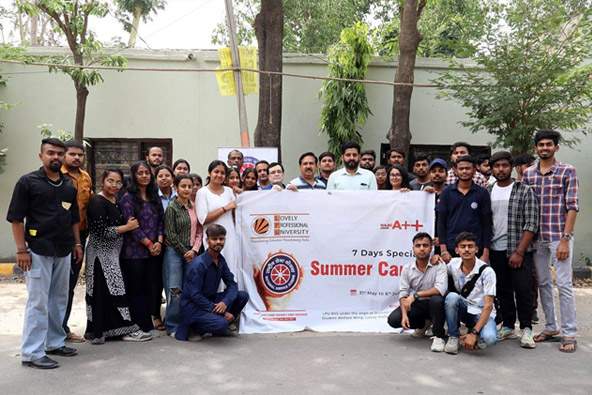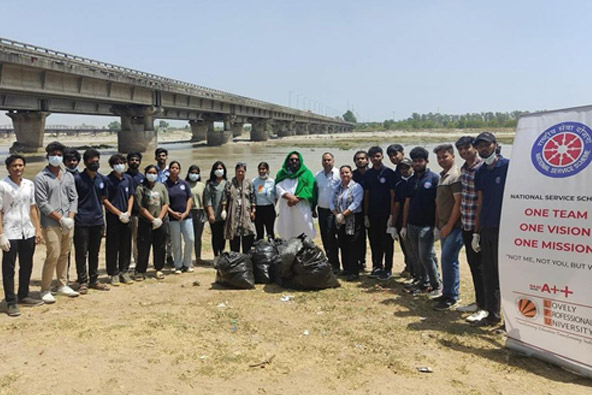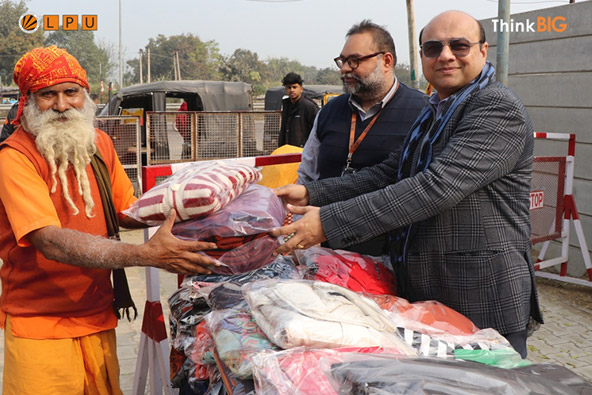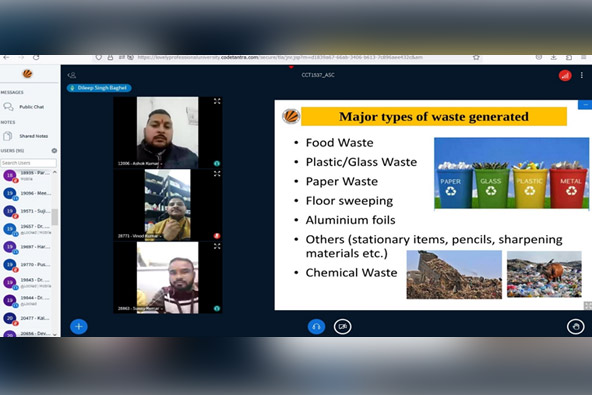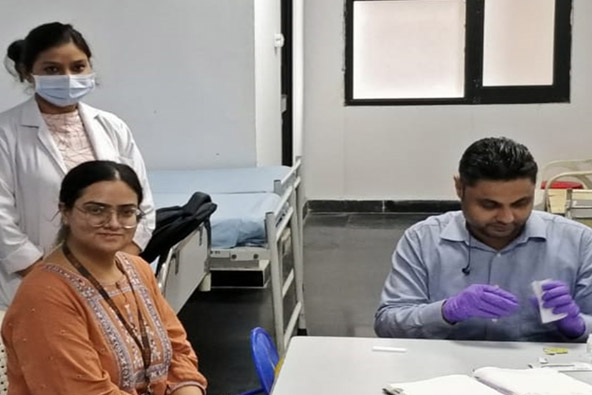Nature has generously provided us with abundant resources, but years of careless and unsustainable use have left behind scars of depletion and imbalance. Lovely Professional University recognizes that the way forward lies in using and producing resources more responsibly, ensuring that today’s growth does not compromise the needs of future generations. The university’s strong commitment to environmental education and sustainable practices has inspired a growing community of students, researchers, and citizens to take action in healing our planet. At LPU, sustainability is not just a policy, it is a way of life integrated across campus systems and initiatives. From encouraging ethical sourcing from local suppliers to adopting eco-friendly packaging solutions, the university has moved away from practices that harm the environment and embraced alternatives that restore balance. Single-use plastics are banned on campus, with an emphasis on biodegradable and reusable products. Advanced waste-management systems ensure segregation, recycling, and safe disposal, while treated water is recycled and reused in landscaping and campus operations. These measures collectively demonstrate how an educational institution can serve as a model for responsible consumption and production under SDG 12.
This commitment is further strengthened by India’s broader national progress in sustainability. The country, once deeply challenged by rising levels of plastic waste and inefficient waste management, has taken bold steps to phase out harmful practices and encourage circular economy solutions. Stricter environmental policies, greater promotion of biodegradable alternatives, and the expansion of waste-segregation practices in cities have shifted India’s image from a major contributor to global challenges to a nation striving to be a leader in sustainable innovation. Lovely Professional University stands proudly aligned with this national vision. Under the visionary leadership of Dr. Ashok Kumar Mittal, Chancellor of LPU and Member of Parliament in the Rajya Sabha, the university combines academic excellence with a strong commitment to sustainable practices. His consistent advocacy for sustainability reflects a belief that educational institutions must play a central role in shaping a greener, more resilient future. LPU is advancing on the path of responsible consumption, showing that with collective will and visionary leadership, sustainability is not just an aspiration but an achievable reality.
In its academic initiatives, LPU has integrated Project SWACHTTA (Cleanliness Campaign) into the first-year curriculum to enhance quality of life while minimizing environmental impact. Titled “Trash the Trash,” this innovative project engages over 6,000 students from across India in anti-littering efforts during their summer vacations. The initiative encourages students to Explore, Discover, Think, and Share (EDTAS) effective strategies for addressing littering within their communities, aiming to raise public awareness through the active participation of these young advocates. LPU also offers a wide range of courses focused on sustainability, with more than 10,000 students enrolled in subjects such as green and sustainable construction practices, sustainable development and livelihoods, sustainable urban development, farming systems and sustainable agriculture, cropping systems and sustainable agriculture, sustainable development and waste management, and ecology, environment, and resources. Alongside the curriculum, innovative teaching methods are employed to instill a sense of social responsibility and environmental consciousness among students, preparing them to be proactive contributors to a sustainable future.
Many research papers, copyrights, and patents have been published on responsible consumption and production, including topics such as Machine Learning–based multi-class waste classification, IoT-enabled WSN for waste monitoring systems, smart food waste monitoring systems, vermicomposting techniques using a special blend of organic waste and Trichoderma, overviews of food waste and its economic impact on hotels, analysis of waste management through mathematical modeling, sustainable self-compacting concrete incorporating diverse industrial wastes and recycled resources, and more.
The framework covers management of all the different type of waste hazardous or nonhazardous waste covering any item biological, chemical, physical and radiological which has the potential of causing harm to humans, animals or environment. The collection, disposal and recycle of the waste should be done as per the guidelines laid by the respective government bodies. The framework is extended to all the contracted services on the campus including food catering services, canteens, suppliers of stationary, equipment and building contracts and supply chain.
- Specific authorization is obtained under Bio Medical Waste (Management & Handling) Rules, 2016 from Punjab Pollution Control Board
- Authorization of Punjab Pollution Control Board for discharge of effluent(s) under Water (Prevention and Control of Pollution) Act, 1974 and under Air (Prevention and Control of Pollution) Act, 1981 is also obtained.
- Authorization under Hazardous and Other Wastes (Management and Transboundary Movement) Rules, 2016 is also obtained from Punjab Pollution Control Board.
LPU's unwavering commitment to SDG12 is evident in its comprehensive suite of sustainable practices. The university has made significant strides in reducing its environmental footprint through initiatives such as renewable energy generation, energy-efficient buildings, and waste reduction programs. Solar power, generated from two and a half lakh power plants, energizes the entire campus while significantly reducing its carbon emissions. Additionally, LPU has invested in solar streetlights and LED lighting to further optimize energy consumption and reduce costs. The university's commitment to sustainability extends to its infrastructure, with green buildings constructed using eco-friendly methods that promote a healthier and more sustainable future. These initiatives collectively demonstrate LPU's dedication to responsible consumption and production, setting a positive example for others to follow.
LPU’s dedication to sustainability is evident in its dining facilities, where the university has prioritized the use of recyclable paper cups for beverages and reusable steel utensils. This initiative has significantly reduced waste generation on campus and promoted a more environmentally friendly dining experience. To ensure effective waste management, LPU has implemented a comprehensive recycling system that collects and processes used paper cups and other recyclable materials. This system is carefully managed to minimize the environmental impact of the university’s operations.
The university’s Vendor Department plays a crucial role in ensuring consistent implementation of these sustainable practices across all campus dining areas. By providing training and guidelines to vendors, the department ensures that LPU’s sustainability initiatives are adhered to and that the highest standards of environmental stewardship are maintained.
LPU has organized number of events on waste management in order to save environment at different levels which Workshop on solid waste management, Jute Bag Designing, Dry Wool Felting, Swachta Abhiyan (Cleanliness Mission), Say No To Plastic Rally, Say No to plastic Campaign along with The Municipal Corporation's paper bag distribution initiative and other happenings are mentioned at the bottom of this page.
- To achieve the sustainable management and efficient use of natural resources.
- To substantially reduce waste generation through prevention, reduction, recycling and reuse
- To reduce per capita global food waste at the retail and consumer levels and reduce food losses along production and supply chains
- To ensure that people everywhere have the relevant information and awareness for sustainable development and lifestyles in harmony with nature.
- To initiate the process of converting waste to energy.
- To establish sustainable supply chain to reduce post harvest losses.
- To achieve 100% segregation of waste and utilization as per waste characteristics.
To manage of all types of waste hazardous or non-hazardous practices for sustainable development related to Responsible consumption and production, various activities are conducted by the university and appropriate measure are taken by the university to manage all types of waste management and promotes a culture of paperless University. Furthermore, the university is committed to develop and monitor the more sustainable patterns of consumption and production in future.








